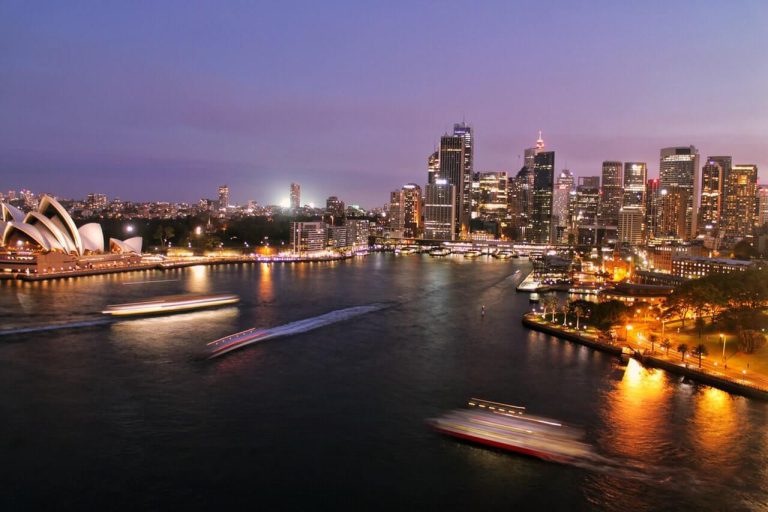STUDY IN AUSTRALIA
Home//Study in Australia

ABOUT AUSTRALIA:
Australia has the third highest number of international students in the world behind only the United Kingdom and the United States despite having a population of only 23 million? This isn’t surprising when you consider Australia has seven of the top 100 universities in the world! In fact, with over 22,000 courses across 1,100 institutions, Australia sits above the likes of Germany, the Netherlands and Japan.
These are strong academic credentials, but our institutions are just as highly rated as the cities that house them around the country. Australia has five of the 30 best cities in the world for students based on student mix, affordability, quality of life, and employer activity – all important elements for students when choosing the best study destination. And with more than A$200 million provided by the Australian Government each year in international scholarships, we’re making it easier for you to come and experience the difference an Australian education can make to your future career opportunities.
INDUSTRIES AND RESEARCH
Every day throughout the world over a billion people rely heavily on Australian inventions. Every time they drive a car, fly, prepare a meal, use a laptop or Smartphone or spend some time in hospital there is a good chance they are relying on Australian inventions or discoveries. Australian inventions include the very old, such as the boomerang and the woomera, and the very new, such as the scramjet, first fired at the Woomera rocket range. Australians have been leaders in inventions relating to both maritime and aeronautical matters, including powered flight, the black box flight recorder, the inflatable escape slide, the surf ski, the wave-piercing catamaran and the winged keel.
The economy of Australia is a developed, modern market economy with a GDP of approximately US$1.2 trillion. In 2009, it was the 13th largest national economy by nominal GDP and the 17th largest measured by PPP.
Small tutorial sizes and heavy instructor intervention are two of the positive attributes that you will find while attending a college in France. The smaller class sizes and involved instructors mean that you have the time and the attention needed to learn, ask questions and get the help that you are seeking. Many colleges in other countries have overcrowded classrooms and it is often hard to find the personalized attention that you need to make the most out of your educational experience. This is not the case with the college and universities that are located in France.
Australia still benefits from the wealth on and under its land and seas. Natural resources and energy companies remain well represented on our list of Australia’s 40 biggest companies. BHP Billiton and Rio Tinto, two mining giants, occupy second and fourth places in the list.
The top ten is rounded out by banks, financial services firms, a telecoms group and food retailers. The full 40 spans multinationals in a range of industries, from Fosters, synonymous with beer but whose wine business is now its larger part, to Qantas Airways to Macquarie Bank, which has developed an investment banking niche in large-scale infrastructure and is the world’s largest operator of private toll roads.
LIFE STYLE
Australia has the third highest number of international students in the world behind only the United Kingdom and the United States despite having a population of only 23 million? This isn’t surprising when you consider Australia has seven of the top 100 universities in the world! In fact, with over 22,000 courses across 1,100 institutions, Australia sits above the likes of Germany, the Netherlands and Japan.Australians are very friendly and helpful people, with a great sense of humor and a natural ability to tell jokes and play with words. Sometimes they may appear cold because of their “private nature” which has been imported over the past 2 decades, but it is just takes time to “break the ice”, and everything goes well. It means you can talk about any subject, but for more personal matters, things will take a little bit longer to come out in the open.
TEST REQUIREMENTS
- TOEFL: Test of English as a Foreign Language (TOEFL)
- IELTS: International English Language Testing System
- PTE: Pearson Test of English (Academic)
COST OF EDUCATION
- Diploma & Advanced Diploma: AU$10,000 to 14,000/-*
- Bachelor’s Degree: AU$: 15,000 to 19,000 per year*
- Graduate Diplomas & Masters: AU$15,000/- to AU$23,000/-*
- Fees given are of informative nature, may vary from university to university
COST OF LIVING
- AUD 21,000 per year
WORK RIGHTS AND STAY BACK
- Part time work right - 40 hours per fort night when the courses in session and full time work rights for spouse for Masters, PhD and post-doctoral programs
- Bachelors 2 years stay back
- Masters by course work 2 years can be extended by 2 years
- Masters by research (3 years )up to 3 years & PhD students – up to 4 years
INTAKE
- Feb/July/ November
WHY STUDY IN AUSTRALIA?
- A great place to study and work
- Attractive scholarships and bursaries
- Strong economy
- Excellent Weather suitable for Indian students
- One of the highest standards of living in the world
- Opportunities to explore job & PR prospects
- Post Qualification work & settlement options
- Research focused & technology driven education
- Globally recognized qualifications
- Options for married students to take their spouses with fulltime work rights

